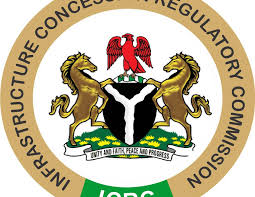. . . MDAs can now approve PPP projects under N20bn subject to ICRC guidelines, certification
ABUJA – In a landmark move to accelerate Nigeria’s infrastructure revolution, President Bola Ahmed Tinubu has empowered the Infrastructure Concession Regulatory Commission (ICRC) to implement a more efficient and better streamlined Public-Private Partnership (PPP) project delivery process by approving PPP thresholds for Ministries, Departments, and Agencies (MDAs).Until now, all PPP projects—regardless of size—were subjected to Federal Executive Council (FEC) approval, resulting in extended processes and limiting the participation of MDAs with small and mid-scale projects.
Ifeanyi Nwoko, Acting Head, Media and Publicity in a statement noted that the new policy decentralizes the approval process, allowing MDAs to approve projects below specified thresholds under ICRC guideline, thereby supporting all scale of projects and encouraging broader private sector investment in PPPs.
Recall that at the just-concluded Nigeria PPP Summit 2025, President Tinubu declared that his administration was strengthening the ICRC as the “engine room of Nigeria’s infrastructure revolution,” noting that PPPs would be pivotal in driving transformative development across the country.
Director General of the ICRC, Dr Jobson Oseodion Ewalefoh, who disclosed the presidential approval, said: “Under the new directive, PPP projects valued below ₦10 billion for Parastatals/Agencies and ₦20 billion for Ministries will now be approved by respective Project Approval Boards (PABs) that will be constituted under ICRC guidelines and regulations. Only projects exceeding these thresholds—or those involving multiple Ministries and requiring inter-agency coordination—will require FEC approval.
“Importantly, all such projects must be entirely privately funded, with no government guarantees or financial commitments from the treasury. Notwithstanding the new thresholds, every PPP project must be submitted to the ICRC for review and certification. The ICRC must issue certificates of compliance before any PPP project can be approved by the PAB and other approving bodies.”
Dr Ewalefoh explained that this framework marks a shift from the previously adopted one-size-fits-all approach, to a more dynamic and scale-sensitive model that will unlock low-value but high-impact projects.
“This approval is a game-changer, especially for sectors like health, education, agriculture, and housing. We expect to see private sector- led investments in projects like rural diagnostic medical centers, construction of classroom blocks, student hostel and delivery of affordable housing schemes across the country—with less bureaucratic requirements under the new adopted process.” he added.He emphasized that the new framework aligns with President Tinubu’s broader public procurement reforms, ensuring harmony across the government’s financial and investment systems.
“By decentralizing approvals, the government is supporting and unlocking investments opportunities through improved capital inflows, job creation, and faster project delivery—exactly what we need in this current economic climate.”
In conclusion, Dr. Ewalefoh stated that the ICRC will continue to promote, guide, facilitate and regulate the PPP ecosystem in the country, while collaborating with other agencies in the infrastructure ecosystem including the Bureau of Public Procurement (BPP), Ministry of Finance Incorporated (MOFI), Bureau of Public Enterprises (BPE) among others.
He enjoined MDAs as project owners and grantors to take advantage of the approved threshold and the new guidelines that will be issued by the Commission. MDAs are encouraged to embrace the utilization of PPPs for the delivery of critical infrastructure in delivering on the Renewed Hope Agenda of Mr. President.
